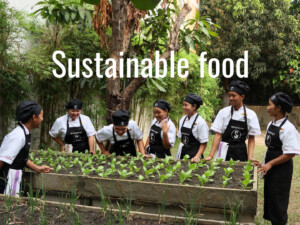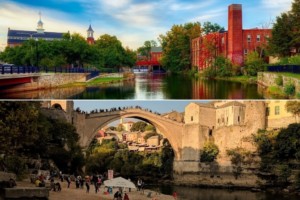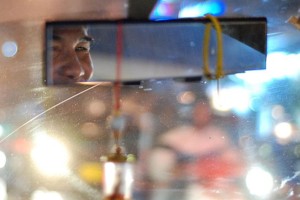Tourism in crisis, tourism in need, & the hopeful pivots of the purpose-driven
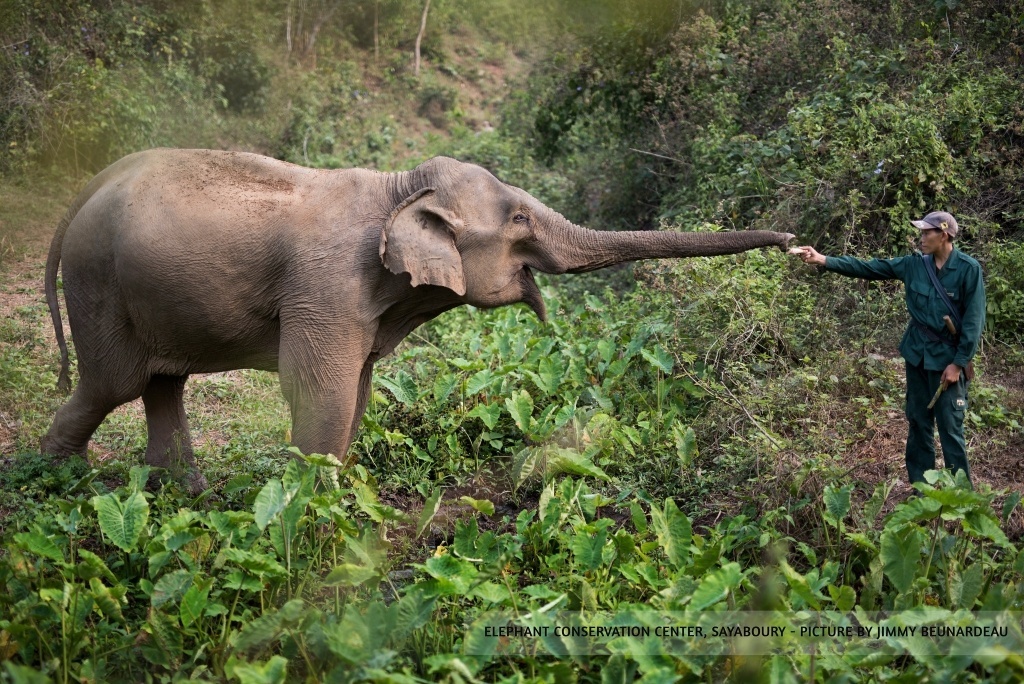
Even the most altruistic of tourism organisations is struggling to survive in destinations that have been reliant on international tourism money to take care of animals, places, and people. However necessity is a parent of innovation and, as Tourism In Need co-founders Robert Powell and Ameer Virani have found out, there are plenty of both in Cambodia, Laos, and Vietnam.
The COVID-19 pandemic has posed unprecedented challenges to tourism businesses around the world. Small to medium-sized enterprises (SMEs) in particular have struggled, especially in the Asia Pacific region where the impact on tourism has been greatest. Millions have lost their jobs and countless families are on the brink of poverty because of this crisis.
While the USA and Europe and other prosperous countries and regions adapt to the new world and start on the long road to “normality”, the COVID-19 crisis continues to have a devastating impact on the people and places of Southeast Asia. The combination of no international tourism and a limited social safety net has forced the closure of many responsible tourism organisations. This is undoing decades of hard work and, with no end in sight, the situation is critical for many.
The futures of communities across Southeast Asia are in jeopardy. Despite the bleak outlook, many who work in tourism try to remain positive. And there are multiple stories of resilience to share and be inspired by.
In the rugged green hills of Cambodia’s eastern Mondulkiri province, the team at the Elephant Valley Project (EVP) has been struggling to keep its elephant care and community outreach programs running since its revenue was cut from USD 25,000 per month to zero in March. They have scrambled to secure alternative funding and are now surviving on one third of their normal budget with the help of World Animal Protection, an animal welfare NGO, as well as the generosity of past visitors. Despite this they have had to cut staff hours, suspend payments of rice to the community, and are behind on salaries.
The elephants are the raison d’être for EVP and remain the priority. Jemma Bullock, EVP’s program manager, is in awe of the community response: “My inspiration is the guys who went out in the thunderstorms this morning to look after these elephants and haven’t been paid in four weeks.” Staff are staying positive and are working with what they have, sourcing food for the elephants on credit, and working many hours unpaid. Luckily, the elephants remain blissfully unaware of the critical situation. So far.
Tourism in crisis: Tourists and donors stay away
Through conversations with EVP and other Tourism In Need partner organisations, we know that there are many tourism stakeholders in desperate need of assistance in Southeast Asia. And many governments’ promises of emergency support to communities have not materialised.
Friends International, for example, which provides support and vocational training to marginalised children and communities throughout the region, has lost a third of its funding and has had to cut a third of its staff and suspend much of its essential work. “The market for our upcycled products has disappeared and so have the jobs,” Friends’ chief of communications James Sutherland said.
It’s not only tourism revenue that has dried up. So have donations.
CRDT (Cambodian Rural Development Team), which runs Le Tonle not-for-profit guesthouse and training centre in Kratie, Cambodia has lost three donors accounting for “around 25% of our annual budget”, according to Or Channy, a director. Friends’ donors too have pulled out as they focus on problems in their home countries.
Tourism in crisis: Domestic tourism can’t fill the gap
As donors direct money elsewhere and international tourists stay away, businesses are turning to domestic tourism to fill the gap.
EGBOK (Everything is Going to Be OK), which provides training and employment opportunities in hospitality to disadvantaged youth in Siem Reap, Cambodia plans to re-open their social enterprise to target local customers to keep their programs alive. The restaurant will be completely student-run.
Friends International has re-opened four of its restaurants for domestic customers, but they have had to reduce their trainee numbers from 60 people to only a handful.
Success is not guaranteed. Domestic tourism in many Southeast Asian nations remains a very small market and, even where it does exist, is not a traditional source market for social businesses or nature-based tourism. These have depended almost entirely on international tourists.
MandaLao Elephant Conservation near Luang Prabang in Laos normally relies on international tourists for 95% of its revenue. It is now offering heavily-discounted tours to domestic travellers but has so far received very few bookings.
The organisations we have mentioned so far are the lucky ones. Many have had to close.
KOTO (Know One, Teach One)‘s mission is to end the cycle of poverty in Vietnam through hospitality education and training. While those activities continue, KOTO’s restaurants have had to close their doors after 21 years.
After four years of hard work, Elephant Valley Thailand is another. It had just launched a second sanctuary with its self-sustaining model for re-wilding elephants. The tough decision to close followed three months of operating without any funding at all. They could not see any light at the end of the tunnel before the end of 2020.
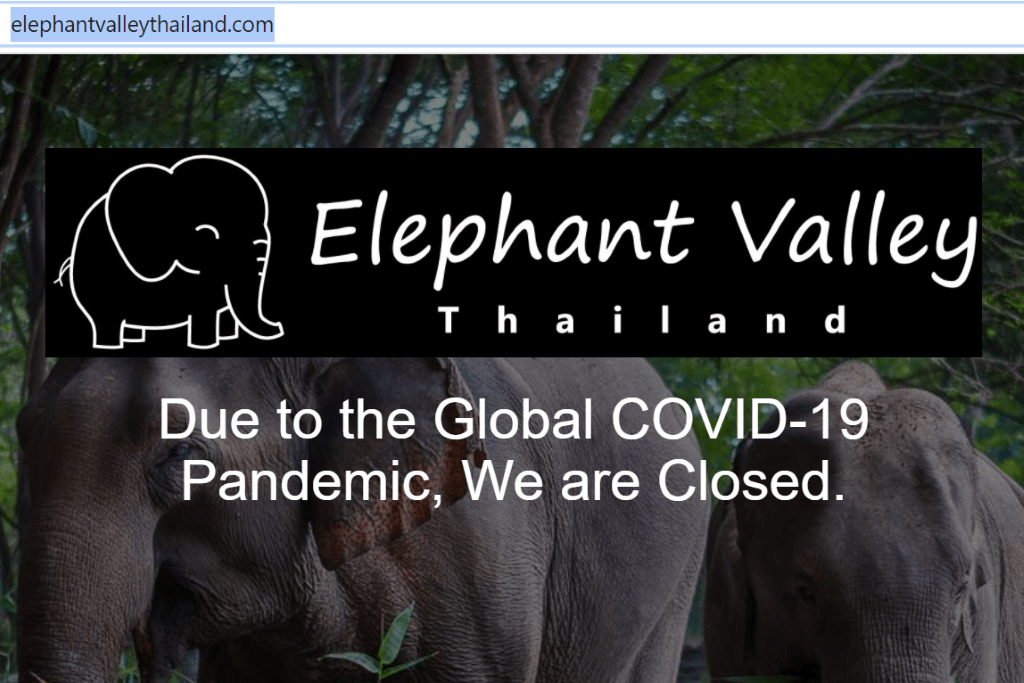
And while Thailand’s islands continue to be eerily silent and Siem Reap, gateway to Cambodia’s wonder-of-the-world, Angkor Wat, remains a “ghost town”, these stories are the tip of an ever-expanding iceberg across the region.
Tourism In Need. Indeed.
COVID-19 is a global tragedy and everyone has been impacted by it. However, as rich economies return to a new kind of “normal”, the outlook for Southeast Asia is worrying. The conversation here isn’t about two-week quarantines for travellers returning from their summer holidays — all borders have been closed or restricted in Southeast Asia since March — it’s about having enough food to eat, mass poverty, and a lost generation.
As we saw the situation deteriorating, we set up our Tourism In Need website in April to connect people in Europe with purpose-driven tourism businesses in need of financial assistance. We registered 25 organisations on the website and saw good traction with donors at the beginning of the campaign. However, since lockdowns have ended in Europe, the long-term impact on intercontinental tourism has crystallised.
The situation for all our partners is now critical, especially as we approach what would normally be the peak season for travel & tourism in Southeast Asia.
Elephant Valley Project (EVP) in Cambodia is currently USD 30,000 in the red and looking like going further into debt for the rest of the year. MandaLao Elephant Conservation in Laos needs another USD 40,000 to feed the elephants under its care and pay local staff for the rest of the year. The NGO Phare Ponleu Selpak in Cambodia needs another USD 400,000 to run its school and train its 1,000 students next year.
This list goes on.
Hopeful pivots: Diversifying beyond tourism
Rather than feeling sorry for themselves, our responsible tourism business partners have been busy devising and implementing innovative plans to fight the COVID-19 crisis by finding alternative sources of income.
Jemma Bullock, program manager for the EVP in Cambodia says the biggest thing to come out of the crisis is “how people look at tourism”; how “it will lead to diversification”.
Looking to an education-based model
For the EVP this means a greater focus on aspects of the program that can be accessed from abroad, such as its education-based initiatives; connecting with schools, offering university summer research courses, and selling online courses and tours to supplement income from nature-based tourism activities.
The EVP has already started to experience some success from this effort. And not only from overseas. For example, EVP recently hosted a program for film students from Phnom Penh who visited the sanctuary to learn how to film elephants and wildlife.
Engaging with corporate partners
Another option for diversifying income is through CSR (corporate social responsibility), according to Jemma Bullock; “corporations can contribute to conservation and give part of their profits to charity.” The REDD+ (Reducing Emissions from Deforestation and Forest Degradation) program is an initiative that secures CSR funding for large protected areas. The EVP operates on the boundary of one of them. The EVP team is also looking for corporate sponsors for their own elephant and community programs.
Hopeful pivots: Repurposing the core mission
As with the EVP, all of Tourism In Need’s other partners have a social or environmental mission at the heart of what they do. They rely on funds from tourism to fulfill that mission. Or at least they used to. Taking into account drastically reduced income and a change in their beneficiaries’ needs, many organisations have had to rethink the services they provide their beneficiaries.
Widening the scope of community support
Phare Ponleu Selpak is an NGO based in Battambang, Cambodia. Phare puts on circus shows for international visitors to generate funds to support their core mission, which includes improving the standard of living of local children and their families through education, social support and vocational arts programs.
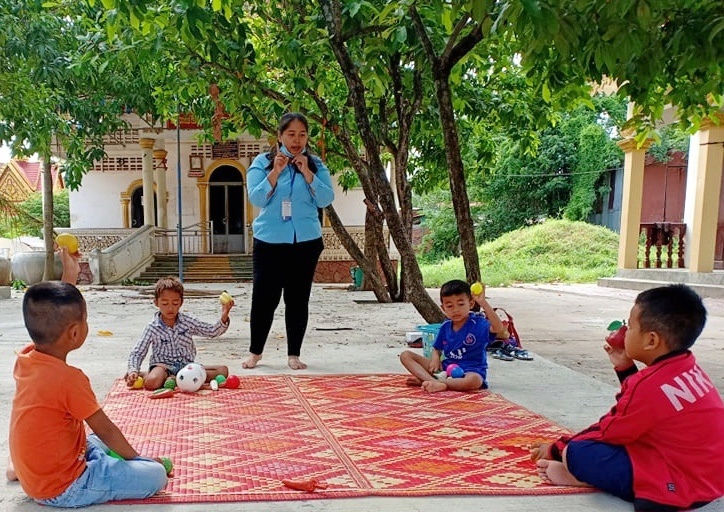
When the global crisis hit, Phare surveyed 485 families in Battambang Province, and discovered that 80% of them were “financially impacted by COVID-19 [and were] in dire need of food and hygiene supplies”, according to Morgane Darrasse of Phare. As a result, every month since June, Phare has put together needs-based emergency relief packages to support the most at-risk families in surrounding communities. “We provide them with rice, noodles, tuna, and essential cooking items,” Morgane said.
Changing business models
EGBOK in Siem Reap, Cambodia has had to go one step further and completely change its social enterprise restaurant business model in response to reduced income. They are no longer able to pay their staff so the restaurant will instead be completely student-run as part of the program’s internship component.
Laurie Parris, EGBOK’s executive director says they have added entrepreneurship training to their programs. “We think many students may wish to go back to their home communities to start a business after finishing with us as they may not be able to find work in tourism after the pandemic,” Laurie said.
Similarly, Reaching Out Tea House in Hoi An, Vietnam has been training its disabled staff on growing fruits and vegetables to help them become self-sufficient in the absence of tourism income.
Hopeful pivots: Adopting technology
Some organisations have looked at more technical solutions to ground-level problems.
Conducting virtual training
Unsurprisingly, many organisations have turned to technology to continue their training programs while face-to-face interaction has not been possible.
Phare has been trying to provide socially-distanced and e‑learning to get its hundreds of students through their final exams, however the challenge has been that many do not have a computer or internet connection at home.
EGBOK faces the same challenge but has adopted the use of technology to continue supporting their beneficiaries. Executive director Laurie Parris is inspired by the “speed with which the team has adapted to the new situation” .
Trialling virtual tours
MandaLao Elephant Conservation in Laos has been trialling virtual tours of their elephant conservation centre but found that the poor internet connection in the forest makes it very difficult to provide a professional service. Additionally, virtual tours just aren’t the same as the real thing, especially when it comes to getting up close and personal with a larger-than-life elephant.
What does the future hold for purpose-driven tourism organisations?
The very limited government support for SMEs in Southeast Asia throughout this crisis has left responsible purpose-driven tourism organisations fending for themselves. Traditional fundraising has become more challenging given the heightened demand for donor funds. Organisations have therefore had to innovate in order to continue serving the people and animals that depend on them to survive and thrive.
Nevertheless, there is some light at the end of the tunnel. Governments in Southeast Asia may not have been supporting local businesses through furlough schemes as those in Europe and elsewhere have been, but they have dealt with the actual virus more successfully. The partners we interviewed were in Cambodia, Laos and Vietnam — we also work with partners in Myanmar, Thailand, and Indonesia — which have experienced low rates of infections and deaths in comparison to other global destinations. This leaves them well-positioned to welcome tourists back.
We sincerely hope that the innovation shown by responsible tourism organisations throughout the crisis, alongside an increasing desire in the tourism sector to not go back to the old ways, will place our purpose-driven business partners in a strong position to thrive in the future.
Give today, go tomorrow
Tourism has been the lifeblood of many people and places in Southeast Asia but it isn’t returning to historic levels anytime soon. These people and places need the support of the international tourism community. Travellers who would like to help can visit Tourism In Need, where we have curated a list of socially- and environmentally-focused businesses that are struggling to survive.
Every penny of every donation goes directly to the organisations in need so that they can continue their important social and environmental work. If you can, give today and go tomorrow. And know that your assistance will be put to good use; that it will contribute to a hopeful cause.
What do you think? Do you know of other purpose-driven tourism organisations and how they are surviving? Share a short anecdote in the comments below. Or write a deeper “GT” Insight. The “Good Tourism” Blog welcomes diversity of opinion and perspective about travel & tourism because travel & tourism is everyone’s business.
Featured image (top of post): Elephant Conservation Center, Sayaboury, Laos. Image by Jimmy Beunardeau; supplied by authors.
About the authors
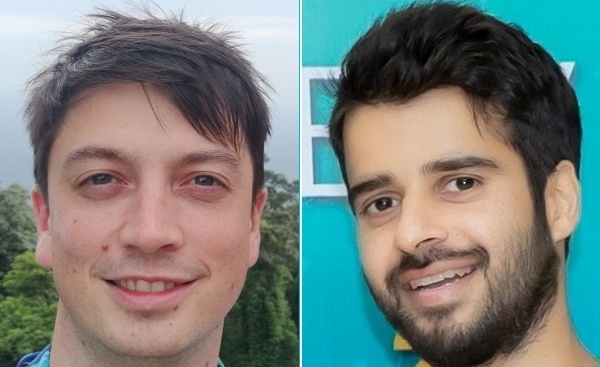
A strategy consultant based in Thailand, Robert Powell is Tourism In Need’s co-founder & communications manager. Since 2012 he has supported organisations and governments across Europe, Latin America, and Southeast Asia in the development and implementation of policy and strategy.
Responsible tourism professional Ameer Virani is Tourism In Need’s co-founder & partnerships manager. He has worked throughout the tourism ecosystem since 2012, in Cambodia, India, Myanmar, and Vietnam, supporting the development of responsible tourism in the region through private-sector and NGO initiatives.
Tourism In Need connects travellers with responsible tourism organisations struggling through the COVID-19 crisis.



